Iranian jailed in Italy says will pray for Italian journalist locked up in Iran
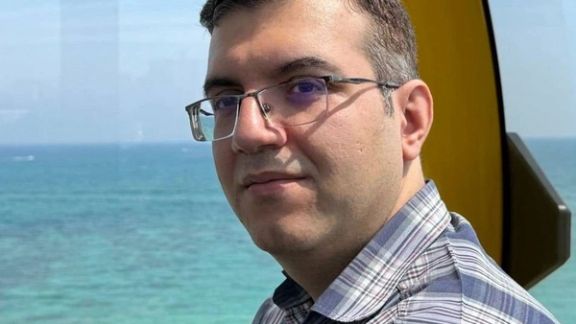
An Iranian detained in Milan who is wanted on terrorism charges by Washington said he would pray for himself and Italian journalist Cecilia Sala, jailed in Tehran.

An Iranian detained in Milan who is wanted on terrorism charges by Washington said he would pray for himself and Italian journalist Cecilia Sala, jailed in Tehran.
"I will pray for her and for myself", Italian media quoted Mohammad Abedini Najafabadi telling his attorney during a meeting Friday at Milan's Opera prison.
Abedini, 38, was arrested by Italian authorities last month at the behest of the United States for his alleged role in providing technology used to kill three US soldiers in a drone attack in Jordan.
Three days after his arrest, Sala was arrested on unspecified charges and placed in solitary confinement in Tehran’s Evin prison despite working in the country on a valid press pass.
Tehran has informed Rome that Sala’s release is contingent on Italy freeing Abedini.
Milan’s attorney general, Francesca Nanni, denied Mohammad Abedini’s request for conditional release on Thursday, citing a high risk of flight.
An appeals court in Milan has scheduled a hearing for January 15 to consider Abedini’s attorney’s request to transfer him to house arrest instead of remaining in Milan’s Opera prison.
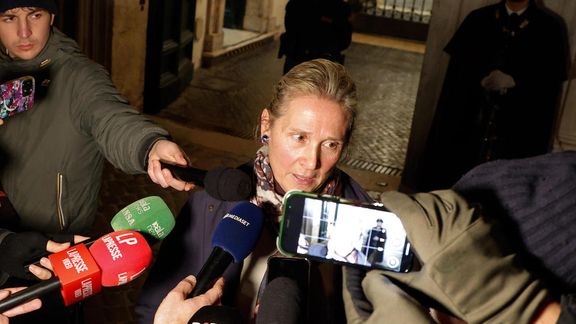
The parents of an Italian journalist detained in Tehran have called on the media to observe a press blackout, citing the delicate nature of efforts to secure her release.
“The situation of our daughter, Cecilia Sala, locked in a Tehran prison for 16 days, is complicated and very worrying," Italian media quoted her parents, Elizabeth Vernoni and Renato Sala, as saying in a statement.
"To try to bring her home, our government has mobilized to the maximum, and now, in addition to the efforts of the Italian authorities, confidentiality and discretion are also necessary.”
They added that the ongoing public debate could hinder progress, saying, “The stage we have reached is, however, very delicate, and the feeling is that the great media debate on what can or should be done risks prolonging the times and making a solution more complicated and distant."
"For this reason, we have decided to abstain from comments and statements and we appeal to the media asking for a press blackout,” they added.
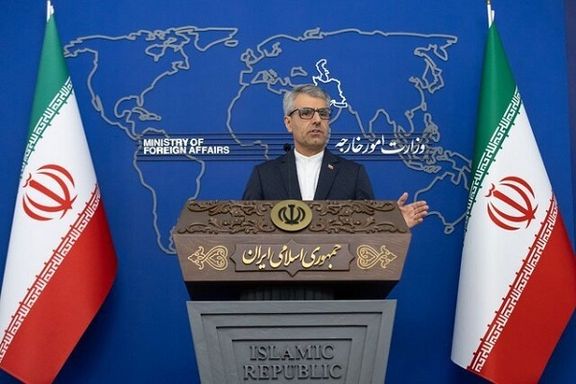
Iran urged Afghanistan to restore the natural flow of rivers along their shared border after Kabul built a second dam on the Harirud River, reducing water supplies to Iran.
"Afghanistan is expected to cooperate in keeping the flow of water and removing the obstacles that have been created," spokesman Esmaeil Baghaei said Thursday.
The Harirud Basin, a water basin shared by Afghanistan, Iran, and Turkmenistan, is now impacted by the construction of the Pashdan Dam on the Harirud River, which could significantly reduce water flow to Iran’s eastern province of Khorasan Razavi where over two million people depend on the river for drinking water.
“The Islamic Republic of Iran has repeatedly mentioned to Afghan parties, through appropriate means, especially through official diplomatic channels and functional (technical) mechanisms, that the use of water resources and basins cannot made without respecting Iran's rights in accordance with bilateral treaties," Baghaei added.
However, officials in Kabul say the Pashdan Dam project is necessary for agriculture. Afghanistan's ministry of energy and water says that alongside the Pashdan Dam, plans are underway for the construction of two additional dams on the Harirud River.
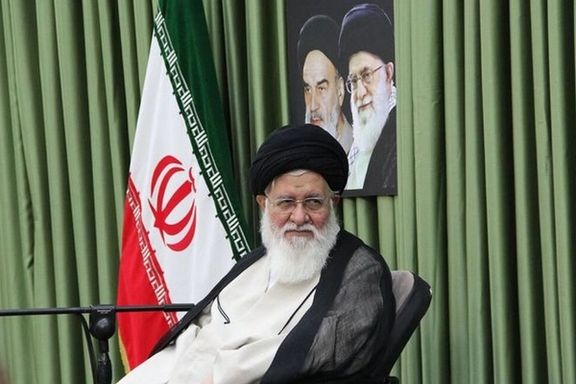
Prominent Iranian cleric Ahmad Alamolhoda warned Friday that relying on negotiations to solve Iran's problems would only encourage Iran's enemies to increase pressure.
"Do not make the mistake of believing the country's problems can be resolved through negotiations. If the enemy senses that its pressure is effective, it will persist and intensify that pressure," Alamolhoda, the Supreme Leader's representative in northeast Khorasan Razavi province, said during Friday's sermon.
His comments come as some Iranian politicians have advocated for direct talks with incoming US President Donald Trump to ease sanctions which have wrought economic crisis.
On Tuesday, one of Iranian President Masoud Pezeshkian's aides called for direct negotiations with Trump, emphasizing the need for a new foreign policy to strengthen international relations.
"We must negotiate with Mr. Trump. The country's issues cannot be left unresolved, and the entire establishment has also reached the conclusion that direct negotiations are necessary," state media quoted Ali Abdolalizadeh as saying.
In a separate interview with Etemad daily, prominent Reformist figure Ali Shakuri-Rad suggested that direct talks with the United States could help curb what he described as the outrageous behavior of Israeli Prime Minister Benjamin Netanyahu.
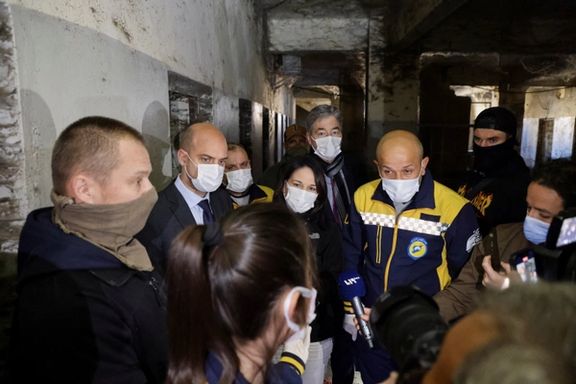
Syria’s Foreign Minister, Asaad Hassan Al-Shibani, told Saudi officials during a visit to Riyadh that the new leadership in Damascus aims to establish a government that includes all segments of Syrian society.
This marks the first foreign trip by a member of Syria’s new administration since the ousting of President Bashar al-Assad in early December.
"Through our visit, we conveyed our national vision of establishing a government based on partnership and efficiency that includes all Syrian components, and working to launch an economic development plan that opens the way for investment, establishes strategic partnerships, and improves living and service conditions," Al-Shibani wrote on X Friday.
Al-Shibani and Syria's defense minister met with Saudi Defense Minister Prince Khalid bin Salman to discuss the country’s future. The new government, led by Islamist rebels under Hayat Tahrir al-Sham (HTS), has sought to reassure regional and international stakeholders of its intent to govern inclusively and avoid exporting Islamist revolution.
Meanwhile, on Friday, the foreign ministers of Germany and France visited Syria to meet with its de facto leader, Ahmed al-Sharaa, signaling the European Union's cautious engagement with the new rulers.
Germany's Annalena Baerbock and France's Jean-Noel Barrot, the first EU ministers to visit since Damascus fell to rebel forces, emphasized the importance of a peaceful transition and inclusivity. The meeting with Sharaa took place in the Damascus People's Palace, but no details of the discussions have been disclosed.
"Our message to Syria's new leadership: respecting the principles agreed with regional actors and ensuring the protection of all civilians and minorities is of the utmost importance," EU foreign policy chief Kaja Kallas wrote on X regarding the visit.
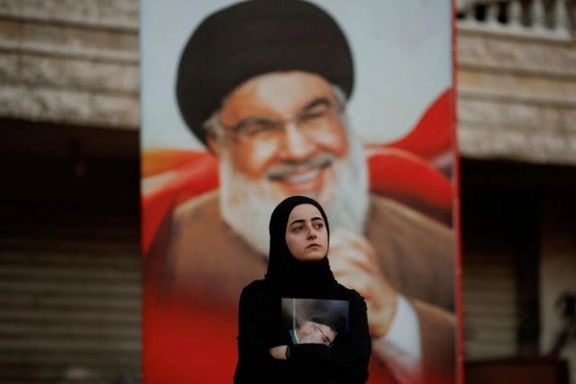
Following reports of an Iranian diplomat refusing to have his bag searched at Beirut Airport, Lebanon’s Foreign Ministry announced later that the funds in his possession were intended for embassy expenses and were eventually cleared for entry.
On January 3, the Lebanese Foreign Ministry stated that it had received an official note from the Iranian Embassy in Beirut and approved the entry of the diplomat’s bags under the Vienna Convention on Diplomatic Relations.
Iranian media also reported that the Iranian Embassy sent a "clarification note" to the Lebanese Foreign Ministry, explaining that the two diplomatic suitcases in question contained "documents and cash for operational expenses of the embassy."
Al-Alam, a news network affiliated with Iran, reported that tensions arose at Beirut Airport when security officials attempted to inspect the bags of an Iranian diplomatic delegation, prompting a standoff.
The network claimed that after the incident, dozens of Shia youths affiliated with Hezbollah on motorcycles headed to the airport, leading the Lebanese Army to block roads to the area.
The incident, the third of its kind since November, follows a series of setbacks for Iran's all Hezbollah in its confrontation with Israel, alongside a decline in its political and military influence in Lebanon. It remains unclear whether Lebanese authorities are genuinely committed to halting the flow of Iranian cash and weapons to Hezbollah or if they are taking high-profile actions to signal to the United States and Israel their intent to curb Tehran's ties with the group.
Ebrahim Rezaei, spokesman for the Iranian parliament's National Security Committee, on Friday urged the Lebanese government to avoid actions influenced by Western countries, warning that the Beirut airport incident is under parliamentary scrutiny.
"The Islamic Republic of Iran has always stood by the Lebanese people and government. We urge the Lebanese government to avoid any questionable actions, particularly under the influence of Western countries, given the region’s sensitive circumstances," Rezaei said.
Beirut Airport security officials had, for the second time in a week, inspected an Iranian plane and the belongings of all passengers on Thursday, January 2. Lebanese authorities had warned that any cash found on planes would be confiscated by the government.
According to reports, Lebanese officials informed Iranian representatives that any suspicious shipments arriving in Lebanon in the future would be seized.
The Al-Hadath network, citing Western sources on Thursday, claimed that Iran was attempting to transfer millions of dollars to Hezbollah through Mahan Air flights from Tehran to Beirut.
Hezbollah’s Deputy Secretary-General, Naim Qassem, previously stated in December that $50 million had been distributed to 233,500 registered displaced Lebanese households. He noted that if aid were extended to the entire population, the total would reach $77 million, adding that the funds had been provided by Iran.
According to Qassem, Lebanese families whose homes were completely destroyed received $14,000 for furniture and a year’s rent if they resided in Beirut or southern suburbs, and $12,000 if they lived outside the city.
Reports of cash transfers to Iran’s proxy groups have surfaced in the past. For example, in 2006, Mahmoud al-Zahar, a senior Hamas official, revealed on Al-Alam TV that during a visit to Tehran, he received several suitcases containing $22 million from Qassem Soleimani, the late commander of the IRGC’s Quds Force.
In 2019, China’s Xinhua News Agency reported that during an event preceding "Quds Day" in Gaza, Iran distributed $651,000 to Palestinian families in the territory.